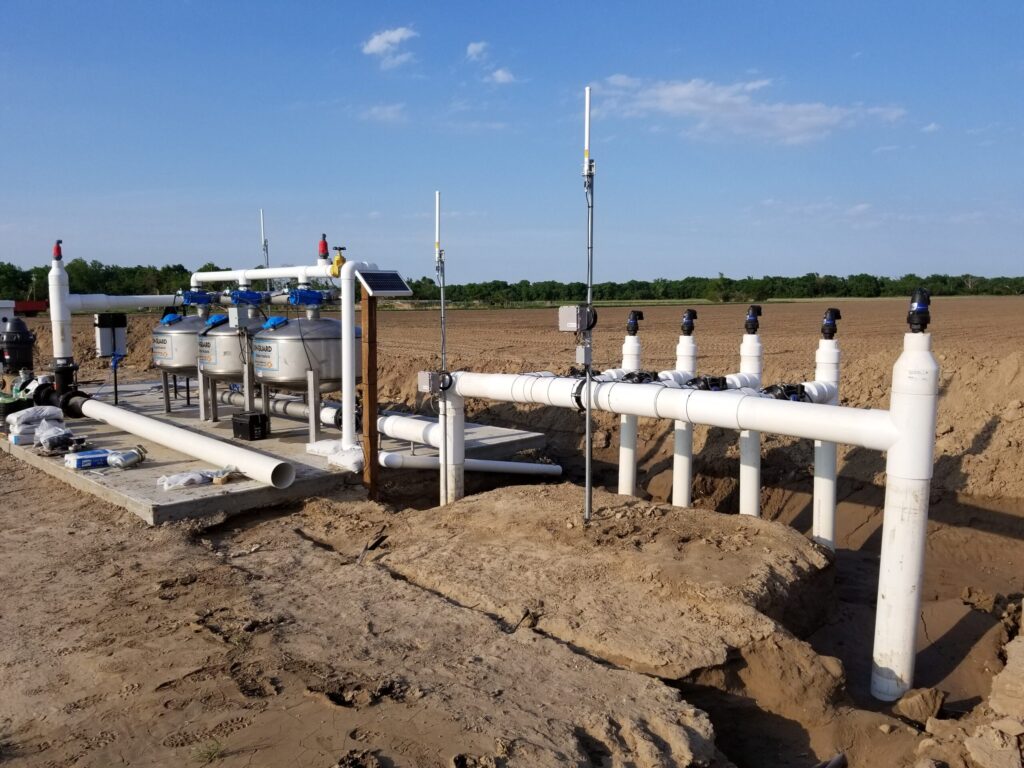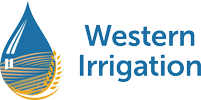Why Water Management Is the Hidden Factor in Farm Profitability
Why Water Management Is the Hidden Factor in Farm Profitability
Farmers constantly seek ways to boost their bottom line—investing in premium seeds, advanced fertilizers, or state-of-the-art machinery. Yet many overlook the most critical factor that could transform their profitability: water management. While commodity prices and weather conditions grab headlines, the efficiency of your water systems quietly determines whether your operation thrives or merely survives.
Effective water management goes far beyond simply keeping crops alive. It represents a strategic approach to resource allocation that can dramatically reduce operational costs, increase yields, and build long-term sustainability. When you optimize water use, you’re not just conserving a precious resource—you’re unlocking hidden profit potential that many farmers never realize exists.
This comprehensive approach to water stewardship affects every aspect of your operation, from soil health and crop quality to equipment longevity and market positioning. Understanding how to leverage water as a profit driver rather than viewing it as a necessary expense can fundamentally change your farm’s financial trajectory.
The True Cost of Poor Water Management
Hidden Expenses
Poor water management creates a cascade of unnecessary costs that steadily erode your profit margins without obvious detection. Overwatering leads to inflated utility bills, while system leaks waste thousands of gallons and increase pumping costs. Additionally, inefficient irrigation requires more labor hours for monitoring and adjustment, driving up operational expenses that could otherwise contribute directly to your bottom line.
Reduced Yields
In consistent water delivery creates crop stress that directly impacts your harvest quality and quantity, resulting in lower market prices and reduced revenue. Plants subjected to irregular watering patterns develop weaker root systems, become more susceptible to disease, and produce smaller, less marketable crops.
Soil Damage
Improper water application leads to erosion and nutrient leaching, which degrades your most valuable asset—the soil itself—requiring expensive remediation and fertilizer replacement over time. Waterlogged fields develop compaction issues that reduce root penetration and oxygen availability, while runoff carries away topsoil and essential nutrients that took years to develop.

Understanding the Link Between Soil Health and Water Use
Moisture Retention
Healthy soil acts as a natural reservoir, holding water longer and reducing the frequency of irrigation cycles, which directly translates to lower pumping costs and more consistent crop growth. Well-structured soil with adequate organic matter can hold up to 20% more water than degraded soil, allowing plants to access moisture during dry periods without additional irrigation.
Organic Matter Benefits
Soils rich in organic content require significantly less irrigation while producing higher yields, creating a double benefit that improves both cost efficiency and revenue generation. Organic matter acts like a sponge, absorbing and releasing water as plants need it, while also providing essential nutrients that reduce fertilizer requirements.
Soil Structure & Porosity
Proper soil structure ensures optimal water infiltration and root zone hydration, preventing both water waste and plant stress that can compromise your harvest quality and profitability. Well-aggregated soil allows water to penetrate deeply while maintaining air spaces necessary for root respiration, creating ideal growing conditions that maximize plant potential.
Efficient Irrigation Systems as Profit Drivers
Precision Watering
Modern drip and subsurface irrigation systems deliver water directly to plant roots with minimal waste, often reducing water usage by 30-50% while maintaining or improving crop yields and quality. These systems eliminate evaporation losses and prevent water from reaching weed-prone areas, reducing both water costs and labor requirements for weed control.
Technology Integration
Smart sensors and automated controls monitor soil moisture and weather conditions in real-time, adjusting irrigation schedules automatically to optimize water use and reduce labor costs while ensuring crops receive exactly what they need when they need it. These systems can detect changes in soil conditions, plant water stress, and upcoming weather patterns, making micro-adjustments that human oversight might miss.
Maintenance Matters
Regular system maintenance prevents costly repairs and ensures peak efficiency, with well-maintained irrigation systems operating at 90-95% efficiency compared to 60-70% for neglected systems, directly impacting your profit margins through reduced water waste and energy costs. Proactive maintenance includes regular cleaning of drip emitters, checking for leaks, and calibrating sensors to ensure accurate readings.
The Business Case for Water Management
Lower Input Costs
Efficient water management reduces pumping energy costs, minimizes fertilizer waste through reduced runoff, and decreases the need for pest and disease treatments that often result from water stress, creating multiple layers of cost savings that compound over time. Proper irrigation timing and application rates can reduce energy costs by 20-40% while ensuring that fertilizers remain in the root zone where plants can utilize them effectively.
Return on Investment
hile irrigation system upgrades require upfront investment, most farmers see payback periods of 2-4 years through reduced water costs, improved yields, and lower labor requirements, making water management one of the most reliable investments in farm profitability. The calculation becomes even more favorable when considering the long-term benefits of improved soil health, reduced equipment wear, and enhanced crop quality that commands premium prices.
Market Advantage
Sustainable water practices increasingly attract premium buyers and certification programs, allowing environmentally conscious farmers to command higher prices while reducing production costs, creating a competitive advantage in today’s market. Consumer demand for sustainably produced food continues growing, with many buyers willing to pay 10-20% premiums for products grown using responsible water practices.

Climate Challenges and Adaptive Water Strategies
Drought Preparedness
Strategic water storage and efficient irrigation systems help farms maintain productivity during dry spells, protecting revenue streams when water becomes scarce and expensive while less-prepared neighbors struggle with crop losses and reduced quality. Water-smart farmers often maintain yields during drought years when market prices typically increase due to reduced supply, creating opportunities for exceptional profitability.
Flood Resilience
Proper drainage and water management infrastructure prevent waterlogged fields and crop losses during heavy rainfall events, while also capturing excess water for future use during dry periods, turning potential disasters into valuable resources. Well-designed systems can redirect flood water to storage areas or allow controlled infiltration that recharges groundwater supplies for later use.
Future-Proofing
Climate variability makes water planning essential for long-term farm viability, with adaptive systems allowing farmers to maintain profitability regardless of weather patterns while positioning them advantageously as water becomes increasingly valuable and regulated. Flexible irrigation systems that can adjust to varying water availability and changing crop needs ensure consistent performance across different climate scenarios.
Farmer Success Stories and Lessons Learned
Small Farm Wins
Small-scale operations often see the most dramatic improvements from water management upgrades, with family farms reporting 40-60% reductions in water costs and 20-30% yield increases after implementing efficient irrigation systems and soil health practices. These improvements are particularly significant for smaller operations where every dollar counts, and the percentage-based gains can mean the difference between struggling and thriving.
Large-Scale Efficiency
Commercial farms leveraging advanced irrigation technology and data analytics report consistent improvements in both cost control and yield optimization, with some operations achieving water use reductions of 35% while maintaining or improving crop quality and market performance. These large-scale implementations demonstrate the scalability of water management benefits and provide valuable data on best practices that smaller operations can adapt.
Common Pitfalls
Many farmers underestimate the importance of professional system design and regular maintenance, leading to suboptimal performance and missed opportunities for profit improvement, while others focus solely on water conservation without considering the yield and quality benefits of proper water management. The most successful farmers treat water management as an integrated system that affects every aspect of their operation, rather than viewing it as a simple conservation measure.
Western Irrigation’s Role in Unlocking Farm Profitability
Tailored System Design
Western Irrigation’s expert team evaluates your specific property conditions, crop requirements, and financial goals to design customized irrigation systems that maximize return on investment while ensuring optimal water delivery for your unique farming operation. Our designers consider factors such as soil type, topography, water source quality, and crop rotation plans to create systems that perform efficiently throughout various growing conditions.
Technology & Mapping
Using GPS tracking and advanced hydraulic design principles, Western Irrigation maps your terrain and creates precise water delivery systems that account for elevation changes, soil variations, and drainage patterns to optimize performance and minimize waste across your entire operation. Our mapping process identifies micro-climates and soil variations that affect water needs, allowing us to design zones that deliver the right amount of water to each area.
Expert Installation & Support
Western Irrigation’s professional installation and ongoing support services ensure your system operates at peak efficiency from day one, with prompt customer service and maintenance programs that protect your investment and maximize long-term profitability through consistent system performance. Our team returns calls the same business day and provides estimates within 24 hours, ensuring that your water management needs receive immediate attention.

Transforming Water from Cost to Investment
Water management service represents one of agriculture’s greatest untapped opportunities for profit improvement. When you shift your perspective from viewing water as a necessary expense to recognizing it as a strategic investment, you unlock potential that can transform your entire operation. The farmers who thrive in today’s challenging agricultural environment are those who understand that every drop of water represents both a cost to control and an opportunity to maximize.
The path forward requires action. Start by evaluating your current water systems and identifying areas where efficiency improvements could generate immediate returns. Consider consulting with irrigation professionals who can provide detailed assessments and design solutions tailored to your specific needs and goals.
Profitable farming and sustainable farming are not competing objectives—they are complementary strategies that work together to ensure long-term success. With water at the center of this approach, you can build an operation that not only survives market volatility and climate challenges but thrives because of superior resource management and operational efficiency.
